From being accused of grave human rights violations and booted from the military to winning Indonesia’s presidency, Prabowo Subianto has come far and risen high.
Reliable quick poll results announced on Wednesday showed that the former army special forces commander beat Ganjar Pranowo and Anies Baswedan, receiving around 58% of the vote.
The win forPrabowo, who used to be seen as a symbol of dictator Suharto’s long rule, is a turning point for Indonesia.
Since the fall of Suharto in 1998, Prabowo will be the first president to have a direct familial link to the man who ruled Indonesia with an iron hand for 32 years.
Suharto’s daughter, Siti Hediati, and Prabowo used to be married. They separated in 1998, the year Prabowo was thrown out of the army, and when Suharto fell, ushering in a new era of democracy in Southeast Asia’s largest and most populous country.
Prabowo, who leads the nationalist Great Indonesia Movement (Gerindra) party, had failed twice before to win the presidency, losing to the outgoing Joko “Jokowi” Widodo in 2014 and 2019.
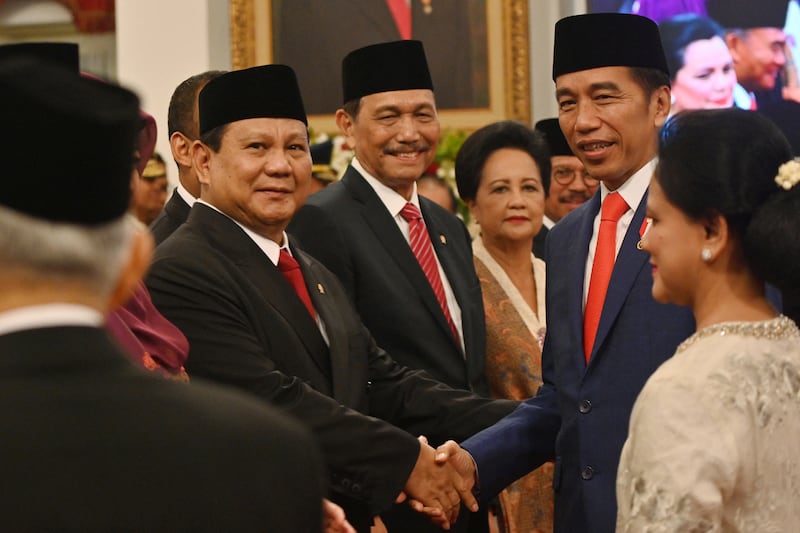
But because there are no permanent friends or enemies in politics, as a wit once said, Prabowo this time decided to join forces with Gibran Rakabuming Raka, a son of old foe Jokowi.
The move didn’t hurt Prabowo, despite accusations of malfeasance, nepotism and dynasticism surrounding Gibran’s path to the vice presidential ticket.
And Prabowo benefited by his association with Jokowi who still enjoys a popularity rating of 76% – few Indonesians were lulled into thinking the president wouldn’t support this pair.
Now, as Jokowi leaves the presidency in October – prevented from contesting due to constitutional terms limits – his son will ascend to the vice presidency – keeping it all in the family.
Since Prabowo, 72, became Jokowi’s defense minister in 2019, he worked towards rebranding himself in the mold of a friendlier figure.
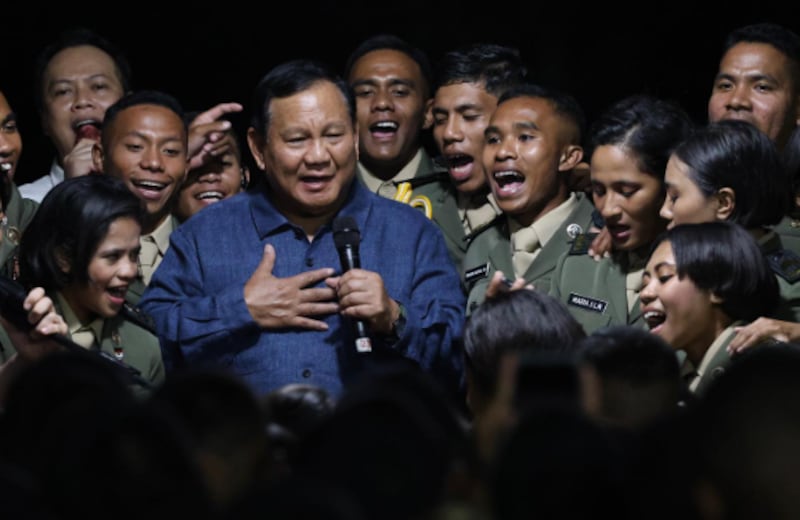
This military pariah, who has battled allegations of crimes against humanity during his days as an Army special forces commander, has taken apart his old, strident personality bit-by-bit.
By the time the 2024 election rolled around, the generational turnover also gave Prabowo an advantage, as some analysts had indicated may happen.
With 52% of the electorate under the age of 40 – a chunk of them from Gen Z – many young Indonesian voters may have been unaware of the serious allegations against Prabowo.
But what this digital generation did know about Prabowo was his love for dancing and his fondness for cats – all amplified on his Instagram account, which has 11 million followers.
He danced his way into the hearts of social media users, earning the nickname of “gemoy” or “cuddly” for his moves. He also became a meme and cartoon star, with his campaign depicting him as a chubby and happy character on billboards and television ads.
He shared his passion for cats on Instagram, posting pictures and videos of his feline friends – and who doesn’t like cat photos?
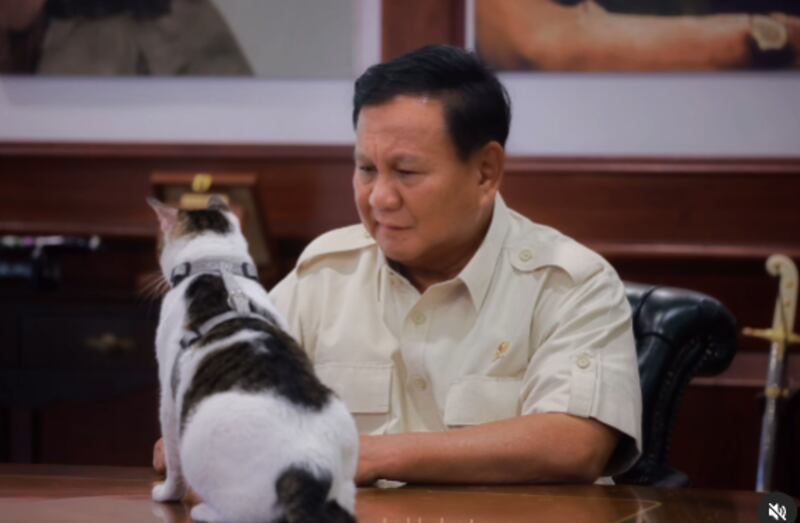
That doesn’t sound like the same ex-general who was called “hot tempered,” “violent,” “brutal,” and “terror-inducing,” and accused of crimes against humanity.
Yet viewers got a glimpse of that so-called notorious temper of his, during the second televised presidential debate in mid-January.
Grave allegations
Behind the hip-shaking and cat cuddling, Prabowo’s past remains a bone of contention.
He has been accused of being involved in or orchestrating several human rights violations during his military career.
Allegations particularly mention the abduction and disappearance of pro-democracy activists in 1997-98, in the months leading up to the fall of Suharto. But no charges have ever been filed against him nor have the allegations against him been tried in court.
While with the army's special forces (Kopassus), Prabowo was involved in several military operations, including the invasion of East Timor (Timor-Leste) and the suppression of the insurgency in the Papua region.
Indonesian security forces, and especially Kopassus, were held responsible for war crimes during the 24-year occupation of East Timor, a truth and reconciliation commission found. And investigators cited several witnesses as saying Prabowo's unit was linked to them.
Prabowo was in 1998 appointed leader of the Strategic Reserve Command (Kostrad).
Indonesians have heard more about Prabowo’s alleged actions at home, while at Kopassus in 1997, and then Kostrad during the turbulent end of Suharto’s rule. Many witnesses alleged that troops under his command kidnapped and tortured democracy activists, and claimed that he himself organized some abductions.
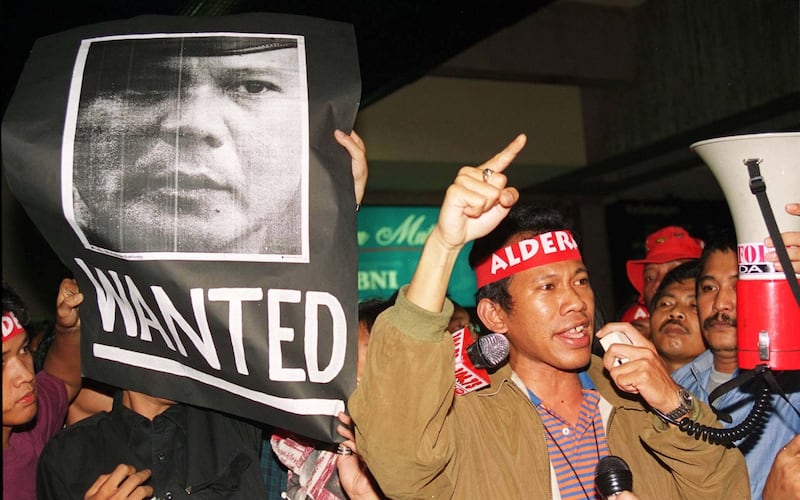
The army threw Prabowo out in 1998 after its investigation found he was implicated in the kidnapping of nine democracy activists, which he vehemently denied.
But in 2014, he admitted to news organization Al Jazeera that he had helped abduct nine activists, but said he was only following orders.
Budiman Sudjatmiko, a former dissident who was jailed by Suharto and is now a Prabowo ally, added more intrigue to this issue in an interview last July.
He said that Prabowo had admitted to him years ago that he abducted some activists in 1997-1998 but claimed he had later released all of them and had “no idea what happened to some who didn’t make it home.”
Prabowo’s $128 M net worth
Prabowo was born in Jakarta on Oct. 17, 1951, to an elite family. His father, Sumitro Djojohadikusumo, was a prominent economist.
Owing to a childhood mostly spent abroad, Prabowo is fluent in Dutch, English, French, and German.
He came back home as a young adult, graduated from the Indonesian Military Academy in 1974, and joined Kopassus, where he rose to become the commander in December 1995.
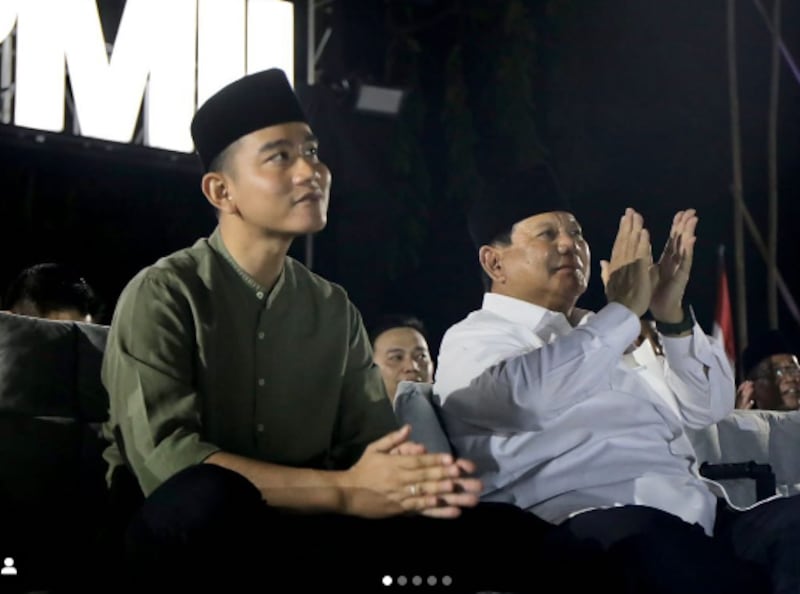
After being forced out of the military in 1998, Prabowo became a businessman and established several companies in various sectors, such as agriculture, mining, and media. He also moved to Jordan, where he lived in exile for several years.
Prabowo is worth 2 trillion rupiah (U.S. $128 million) as of November 2023, according to his wealth declaration submitted to the country’s anti-corruption agency.
He is said to have earned his wealth mainly from his businesses.
Prabowo returned to Indonesia in 2004, and began a new career in politics, so he could serve the nation and restore its glory, according to his statements over the years.
He co-founded the Gerindra party in 2008.
During the 2024 campaign, Prabowo portrayed himself as a nationalist defending his country from foreign interference and exploitation.
For instance, when he urged Europe in November to open its market to Indonesia’s products – especially palm oil, which has been subject to environmental and human rights concerns – he invoked his country’s colonial past.
“It was the Europeans who came to our islands and forced us to plant tea, coffee, rubber, cocoa,” he said at an event organized by the Centre for Strategic and International Studies.
“[A]nd now you’re saying we are destroying our forest. You destroyed our forest.”
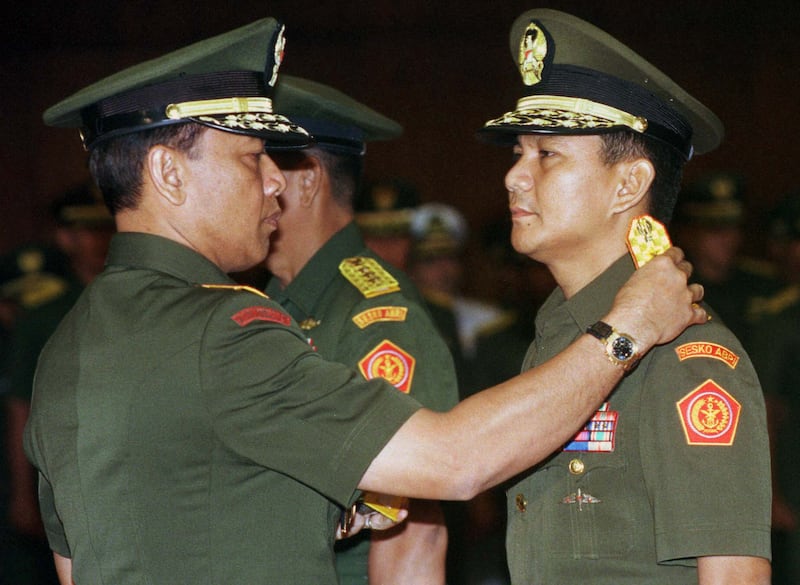
But this sort of nationalism doesn’t appeal to the families of the more than a dozen democracy activists missing since 1997-1998.
Petrus Haryanto, who formed an organization called FDR, which works towards justice for the forcibly disappeared, started a campaign last year called “Don’t vote for a kidnapper!”
His group wants to restore the values of the 1990s activists – namely honesty, human rights and humanity, he said in July.
“Because of this, the nationalism that we put forward is humanitarian nationalism,” Petrus said in July.
Ahmad Syamsudin in Jakarta contributed to this report.
